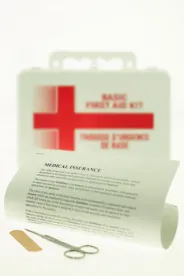On Tuesday, July 23rd 2014, separate federal circuit court panels issued conflicting rulings regarding whether the government could subsidize health insurance premiums for Americans enrolled in federally-run health exchanges.
While a three-judge panel of the U.S. Circuit Court of Appeals for the District of Columbia in Halbig v. Burwell ruled that the Affordable Care Act does not allow subsidies on federally run exchanges, another three-judge panel of the 4th U.S. Circuit Court of Appeals in Richmond, Va., held the opposite.
The D.C. Circuit's decision will not have any immediate effect on insurance subsidies, as it was stayed pending the outcome of a rehearing before the full court, which the Obama administration quickly promised to seek. The majority's position will likely face a tough road if en banc review is granted, because judges appointed by Democrats have a three-seat advantage on the D.C. Circuit.
If the Halbig ruling stands, it could cut off financial assistance for more than 4.5 million people who were found eligible for subsidized insurance in the federal exchange and could pose a serious threat to the overall viability of the Affordable Care Act. The ruling could also undercut enforcement of the requirement that most Americans must have insurance and larger employers must offer it to their full-time employees. Under this ruling, many people could see their share of premiums increase sharply. Subsidies reduced the average premium to $82 a month from $346, according to a May 2014 report from the U.S. Department of Health and Human Services (HHS). As for local impact, 85 percent of Missourians and 77 percent of Illinoisans who bought a plan on the exchange received some level of financial assistance for those plans, according to the same May 2014 report by HHS.
Health insurers have anticipated that more Americans would sign up through the exchanges during the 2015 open enrollment, which runs from Nov. 15, 2014, through Feb. 15, 2015. But if the ruling in Halbig stands, it could potentially affect that projection. Large health insurance companies have already been slow to offer products on health exchanges and could ultimately decide to forgo offering health insurance coverage in states who utilize the federal exchange (e.g. healthcare.gov). This is because the withdrawal of subsidies could significantly reduce the volume in the exchange market and lead to a less healthy pool of enrollees. In turn, health providers across the spectrum from health systems to physician’s practices could see a decrease in the volume of patients who made their way into the system this year because they purchased insurance for the first time. The Justice Department stated shortly after the ruling that the government would continue paying subsidies to insurance companies on behalf of consumers in the 36 states that use the federal exchange, pending further review of the issue by federal courts.






 />i
/>i

